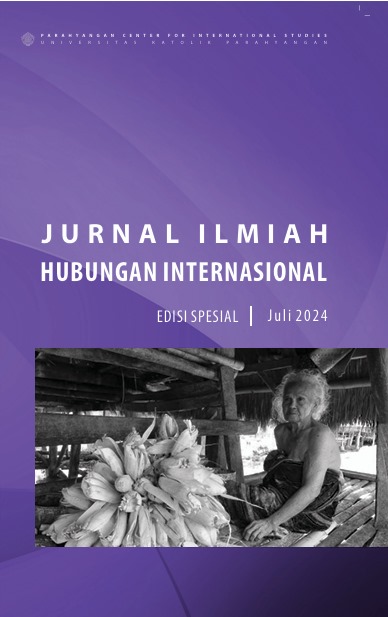Pergeseran Penghidupan dan Agensi Perempuan: Perempuan Penenun Sumba dalam Menunjang Resiliensi Keluarga dan Komunitas
DOI:
https://doi.org/10.26593/jihi.v1i1.7842.174-188Abstract
In the last two decades, Sumba Island has experienced a shift in livelihood patterns after the extension of four regencies in the region. The change was initiated by Indonesia's development program through agro-industrial expansion in areas considered less fertile. In addition, the hilly characteristics of the region with vast grasslands and also the traditions of the Marapu indigenous people in Sumba have attracted the attention of the tourism industry. Therefore, indigenous communities have experienced a shift in land ownership systems and some of them have shifted to livelihood strategies of small farm management to non-agricultural activities, such as mining or becoming migrant workers. These changes also affect the gender division of labor and also the symbolic values of Sumba's indigenous people, such as weaving activities carried out by women. They utilize the skills they have acquired over generations to respond to these conditions and support their family's and community’s resilience. To understand changes in livelihood conditions, the meaning of symbols, and women's narratives, this research uses qualitative methods within the Sustainable Livelihood Framework with an ecofeminism perspective. This research discusses how the agency of women weavers in responding to changes in livelihood patterns amid the implementation of capitalist-patriarchal oriented development programs. The findings of this study show that the agency and activism of women weavers are influenced by affective historical factors by adapting the symbolic value of weaving customs into economic and emancipatory values.
Keywords: livelihood, women weavers, family, community, agency, development programs.
Downloads
Published
Issue
Section
License
Copyright (c) 2024 Jurnal Ilmiah Hubungan Internasional

This work is licensed under a Creative Commons Attribution 4.0 International License.
This journal uses Creative Commons license (CC BY). We allow readers to read, download, copy, distribute, print, search, or link to the full texts of its articles and allow readers to use them for any other lawful purpose. The author must be aware that the article copyrights will be fully transferred to Jurnal Ilmiah Hubungan Internasional only if the article is accepted to be published in the journal through signing of the Copyrights Transfer Agreement. Authors are allowed to resend their manuscript to another journal or intentionally withdraw the manuscript only if both parties (JIHI and Authors) have agreed on the related issue. Once the manuscript has been published, authors are allowed to use their published article under Jurnal Ilmiah Hubungan Internasional copyrights.





